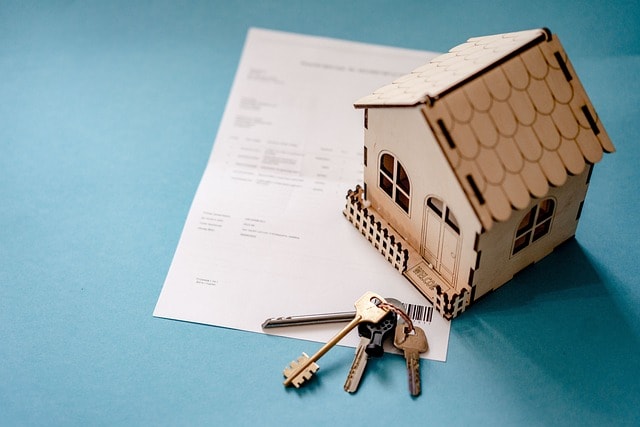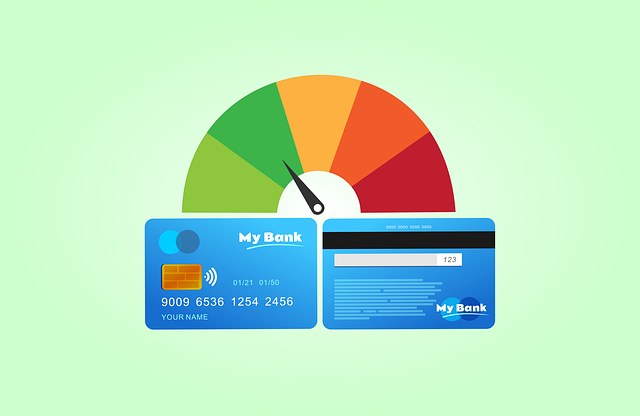What is a Physician Loan?
Physician loans are specialized home loan products designed to help medical professionals secure a mortgage with favorable terms. They may be listed as a doctor loan, physician mortgage, or doctor mortgage.
These loans cater to physicians, dentists, and other high-income healthcare professionals who often face unique financial circumstances, such as significant student loan debt or limited savings for a down payment.
The history of physician loans dates back to the early 2000s when lenders recognized the financial potential of doctors despite their high student loan debt. Physician mortgages are now offered by many banks and mortgage lenders, with tailored programs that address the unique needs of medical professionals.
Unlike traditional home loans, physician loans typically require little to no down payment and waive private mortgage insurance (PMI), making them an attractive option for those starting their medical careers.
How do Physician Mortgages work?
Physician mortgage loans operate differently from conventional mortgages. They are structured to account for a physician’s high earning potential, even if their current financial situation includes substantial student loan debt.
Key Features of Physician Mortgages:
- No or Low Down Payment: Many lenders offer these loans with minimal or no down payment required.
- No Private Mortgage Insurance (PMI): Unlike traditional mortgages, physician loans typically waive PMI, even with a low down payment.
- Higher Debt-to-Income Ratio Allowance: Lenders often overlook high student loan debt when evaluating a borrower’s financial profile.
- Employment Contracts: Some lenders approve loans based on future income stated in an employment contract rather than current pay stubs.
Physician Loan Example
Dr. Smith, a newly graduated physician, has $200,000 in student loan debt and minimal savings. She applies for a physician mortgage to purchase a home priced at $500,000. Her lender waives the requirement for a down payment and PMI. Dr. Smith qualifies for the loan because of her employment contract, which guarantees a high income starting within 60 days.
What are the qualifications for a Physician Loan?
To qualify for a physician mortgage, lenders evaluate several factors:
- Credit Score: A credit score of 700 or higher is often required, although some lenders may accept lower scores.
- Income: Proof of income or an employment contract demonstrating future earnings is essential.
- Medical Degree: Borrowers must typically be practicing doctors, dentists, or other healthcare professionals with a qualifying medical degree.
- Debt-to-Income Ratio: Lenders may use an adjusted ratio, excluding or reducing the impact of student loan payments.
Some lenders may also request additional documents, such as tax returns, bank statements, or pay stubs, to verify financial stability.
What are the benefits of Physician Mortgages?
Physician mortgages provide significant benefits for medical professionals, especially those early in their careers. One of the most notable advantages is the ability to secure a loan with little or no down payment, which makes homeownership more accessible, even for those with limited savings.
Additionally, these loans do not require private mortgage insurance (PMI), a cost typically added to traditional mortgages with smaller down payments. By waiving PMI, borrowers can save hundreds of dollars monthly.
Physician loans also come with high loan limits, allowing medical professionals to purchase higher-priced homes that align with their future earning potential. Another key benefit is the flexible underwriting criteria.
Many lenders adjust their evaluations to minimize the impact of student loan debt, which is a common burden for physicians and other healthcare professionals. These features make physician mortgages a practical and appealing solution for high-income professionals looking to establish financial stability early in their careers.
What are the drawbacks of Physician Mortgages?
Despite their advantages, physician mortgages have drawbacks that borrowers should carefully consider. First, these loans often come with higher interest rates than conventional mortgages, which can lead to increased monthly payments over the life of the loan.
Additionally, not all lenders offer physician loans, limiting availability and reducing the options for comparison shopping. Another limitation is that physician mortgages are typically restricted to primary residences, meaning they cannot be used to purchase investment properties or vacation homes.
Borrowers must also be cautious about the potential for overextending financially. Since physician loans allow for little or no down payment and high loan limits, buyers may be tempted to purchase a home beyond their means, especially early in their careers when income levels are not yet fully realized. Understanding these drawbacks is essential for medical professionals to decide whether a physician mortgage aligns with their long-term financial goals.
Physician Loan Pros & Cons
Pros:
- Low or no down payment required.
- No private mortgage insurance (PMI) needed.
- Higher loan limits for more expensive homes.
- Flexible underwriting considers future income and minimizes the impact of student loan debt.
Cons:
- Higher interest rates compared to conventional loans.
- Limited availability among lenders.
- Restricted to primary residences, not for investment properties.
- Risk of overextending financially with high loan balances.
How do I apply for a Physician Mortgage?
Filing for a physician mortgage loan is simple and designed for medical professionals—including doctors or dentists. Follow these steps to apply for a physician loan:
Step 1: Research Lenders
Look for lenders that specialize in physician mortgage loans. Many banks and credit unions offer tailored programs. Find a mortgage lender where you’re likely to qualify.
Step 2: Gather Documents
Prepare necessary documents, including proof of medical degree, employment contract, credit report, and bank statements.
Step 3: Pre-Approval
Apply for pre-approval to determine your eligibility and budget.
Step 4: Choose a Property
Work with a real estate agent to find a home within your pre-approved loan amount.
Step 5: Finalize the Loan
Submit your application, pay lender fees, and close on your home.
Frequently Asked Questions
Here are the most common questions about physician loans.
Are Physician Loans only for purchasing a home?
Physician loans primarily refer to specialized mortgage products designed for medical professionals to purchase or refinance a primary residence. These loans are tailored to address physicians’ unique financial circumstances, such as high student loan debt and limited savings for a down payment while leveraging their high earning potential. Importantly, physician loans and physician mortgages are terms often used interchangeably, which can sometimes create confusion.
Some doctors may mistakenly assume that a physician loan could be used for business purposes, such as starting or expanding a medical practice. However, this is not the case. Physician loans are strictly for homeownership and cannot be applied toward non-residential or commercial properties. These loans are meant to help healthcare professionals achieve personal financial stability by allowing them to buy a home earlier in their careers without the traditional barriers of large down payments or private mortgage insurance.
For business purposes, such as funding a medical practice, doctors would need to explore alternative loan options, such as medical practice loans, specifically designed for business-related expenses like equipment, office space, or working capital. Understanding the distinction between these loan types is crucial for doctors navigating their personal and professional financial goals.
Can I get financing for my Medical Practice?
Yes, physicians can obtain financing specifically tailored to the needs of their medical practices. These loans, commonly called medical practice loans, are business loans designed to help doctors start, expand, or sustain their practices. Unlike physician loans, which are mortgages tied to personal property, medical practice loans focus on business-related expenses and operations.
Medical practice loans can be used to finance a wide range of needs, including:
- Purchasing or leasing medical equipment and technology
- Acquiring office space, whether through purchase or lease
- Renovating or upgrading an existing practice
- Covering working capital to manage daily expenses, such as payroll, utilities, and supplies
- Marketing and advertising efforts to attract new patients
- Consolidating high-interest business debt
- Acquiring an existing practice from another healthcare professional
To qualify for a medical practice loan, lenders typically require a detailed business plan outlining the purpose of the loan, anticipated costs, and projected revenues. Financial statements, including tax returns, cash flow projections, and a strong credit history, are also crucial.
Medical practice loans often provide flexible repayment terms and competitive interest rates. Some lenders even offer programs tailored to the healthcare industry, recognizing the relatively stable income of medical professionals. However, loan approval may also require collateral, such as purchased medical equipment or other business assets, to secure the financing.
These loans are invaluable tools for healthcare professionals seeking to establish or grow their practices. They offer the resources necessary to thrive in a competitive industry while keeping their personal and business finances separate.
What’s the difference between a Physician Loan & Medial Practice Loan?
Although both physician loans and medical practice loans cater to the needs of medical professionals, their purposes and structures differ significantly. Understanding these distinctions is crucial for physicians looking to manage their personal and professional finances effectively.
Physician Loans
Physician loans, often called physician mortgages, are designed to help medical professionals purchase or refinance a primary residence. These loans are tailored to address common challenges physicians face, such as high student loan debt and limited savings for a down payment.
Unlike traditional home loans, physician loans focus on the borrower’s potential for future income, sometimes accepting employment contracts instead of current pay stubs. However, physician loans are strictly for residential use and cannot be applied to business or investment properties. Their primary purpose is to support medical professionals in achieving homeownership early in their careers while offering terms that align with their financial circumstances.
Medical Practice Loans
On the other hand, medical practice loans are business loans specifically designed to help physicians start, expand, or manage their medical practices. These loans cater to a medical practice’s operational and growth needs, providing financing for expenses such as purchasing medical equipment, leasing or acquiring office space, hiring staff, covering working capital, or acquiring an existing practice.
Unlike physician loans, medical practice loans require a detailed business plan and a clear strategy for how the funds will be used to generate revenue. Approval often hinges on the practice’s financial stability, the borrower’s credit history, and collateral, such as equipment or other business assets. These loans are not tied to personal property and are used exclusively for business purposes.
Comparing the Two
The critical difference between physician and medical practice loans is their intended use. Physician loans focus on personal homeownership, offering favorable terms to meet the unique financial challenges of medical professionals. Medical practice loans, by contrast, address the needs of running or expanding a business, offering a broader range of financing options tailored to the demands of operating a healthcare practice.
For physicians navigating personal and professional financial goals, understanding the distinctions between these loan types ensures they choose the best option for their needs. While physician loans help secure a place to live, medical practice loans provide the resources necessary to grow and sustain a thriving business.
Can I get a Physician Loan or Medical Practice Loan with Bad Credit?
Bad credit can make securing a physician mortgage challenging, as these loans often require strong credit. However, some lenders offer alternative financing options for those with lower scores, usually at higher interest rates.
Medical practice loans may be more accessible for borrowers with bad credit, especially if the loan is secured by collateral or co-signed. It’s essential to compare loan options and consult with loan officers to find the best solution for your financial goals.
What is a Physician Loan – Final Thoughts
Physician loans are powerful tools for high-income professionals with unique financial challenges. Whether purchasing a home or expanding a practice, understanding your loan options can help you achieve your goals while navigating the complexities of medical careers.
A physician mortgage can help younger doctors access financing to purchase a home, bypassing some of the restrictions many doctors face. In contrast, a medical practice loan helps physicians realize their small business dreams with essential funding for business goals.
Contact us if you have more questions about financing options for medical professionals or to apply for a small business loan. While our lenders don’t provide mortgages, our alternative financing experts can help you find the best business loans to advance your medical practice.






















